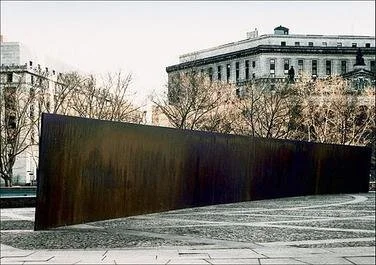Reassessing American “Ruin”
Reviewed by Pedro A. Regalado
During the 1970s and 1980s, the South Bronx was the epicenter of American “ruin.” In the popular imagination, flames engulfed acres of developed cityscape; poverty and violence mingled with the remains of abandoned buildings; and a crack epidemic degenerated entire neighborhoods.
Read MoreThe Corporate Campaign to Save Madison Square Park
By Benjamin Holtzman
In the late 1970s, after a decade of budget cuts had decimated the New York City park system, an ambitious former Parks Department official named Donald Simon came up with a radical plan to save Madison Square Park and — he hoped — parks across the city. Simon believed that the park’s setting in a Manhattan business district could catalyze the park’s revitalization. If the corporations whose headquarters overlooked the park could see how their fortunes were tied to the park’s conditions, Simon believed, they would contribute funds that could provide the maintenance, security, and management necessary to revive the park.
Read MoreCivilian Anticrime Patrols in 1970s New York: Crime, Self-Help and Citizenship in the Neoliberal City
By Joe Merton
Recent scholarship has done much to illuminate the so-called “neoliberalization” of New York during the 1970s and 1980s, in which a bold midcentury experiment in urban social democracy was dismantled in the wake of the city’s fiscal crisis and replaced by an agenda of municipal austerity, business-oriented economic development, and market-led privatization.[1] Much of this work identifies this process as a top-down transformation led by the city’s financial and political elite and resisted by many New Yorkers.[2] But what if New Yorkers did not always resist or passively receive this process but actively perpetuated it themselves?
Read MoreThe Unexpected Logic of Art Economics: Arts and Inequality in 1980s New York
By Sarah Miller-Davenport
When Richard Serra’s Tilted Arc was installed in Federal Plaza in Lower Manhattan’s Foley Square in 1981, it was meant to be a pioneering work of public art that would expose New York’s masses to post-minimalist sculpture. Tilted Arc would indeed become one of the most legendary sculptures in 20th century history—but not for its artistic merit.
Read MoreHenry Chalfant: Art vs. Transit, 1977-1987
Reviewed by Katie Uva
On October 30, 1975, The New York Daily News thudded onto curbs, newsstands, stoops, and doorsteps around the city trumpeting the (paraphrased, but nevertheless evocative) attitude of President Gerald Ford toward New York: “Drop Dead.” There was no question that New York was in trouble: rising crime, declining quality of life, mounting public debt, and arson all plagued the five boroughs.
Read MoreRough Paradise: Sex, Art, and Economic Crisis on the New York City Waterfront
By Jeffrey Patrick Colgan and Jeffrey Escoffier
New York City was for many years one of the world’s leading ports. In the early 1950s, the docks in New York City, by far the country’s busiest, directly and indirectly supplied, according to the City’s Department of Marine and Aviation, livelihood for almost 10% of the city’s population. Nevertheless, even then there were signs of the port’s impending doom. Plagued with racketeering, traffic congestion, and outmoded facilities, the invention of container shipping was the final straw. Without adequate rail and road access and the space to operate cranes and stack containers, most of the port’s Manhattan-based business moved to New Jersey where new container facilities were being built.
Read MoreOn the Hot Seat: An Interview with John Garvey of the Taxi Rank & File Coalition
John Garvey is a Brooklyn native and lifelong New York City resident. During the 1970s, he was a leading activist in the Taxi Rank & File Coalition, a group of radical cab drivers determined to fight their bosses and a union leadership they perceived as corrupt and ineffective. Later in life, John worked as an educator in New York City jails and headed the Teacher Academy and Collaborative Programs at the City University of New York, where, among other things, he was instrumental in establishing the CUNY Prep program, which offers out-of-school youth a pathway to college. He is an editor of Insurgent Notes, of Hard Crackers: Chronicles of Everyday Life, and was an editor of Race Traitor, a journal that published between 1993 and 2005 whose motto was “treason to whiteness is loyalty to humanity.”
This interview, conducted by Gotham's Andy Battle, has been condensed and edited for clarity.
Read MoreContested City: An Interview with Gabrielle Bendiner-Viani
Today on Gotham, Prithi Kanakamedala interviews Gabrielle Bendiner-Viani about the process of community-engaged pedagogy, collaborative public history, and advocacy around the Lower East Side's SPURA.
Read MoreThe Deuce Times Two
By Jeffrey Escoffier
“It was the best of times, it was the worst of times.” The famous opening line of Dickens’ Tale of Two Cities certainly seems like an appropriate way sum up 1970s New York, but I cite it also because the novel itself comes up in The Deuce’s first season as a book that launches a young prostitute on the road to reading and going back to school. Objectively life in New York City during the 1970s and early 80s was pretty bad — high crime rates, rampant homelessness, loose trash everywhere, whole neighborhoods of abandoned buildings crumbling and burning — yet it was an incredibly creative time as well: in music, art, performance, theater and sexuality. This was brought home to me recently when a 70-year-old retired professor of history said to me: “I know everything was so terrible in that period, but it was also incredibly exciting.”
Read More







